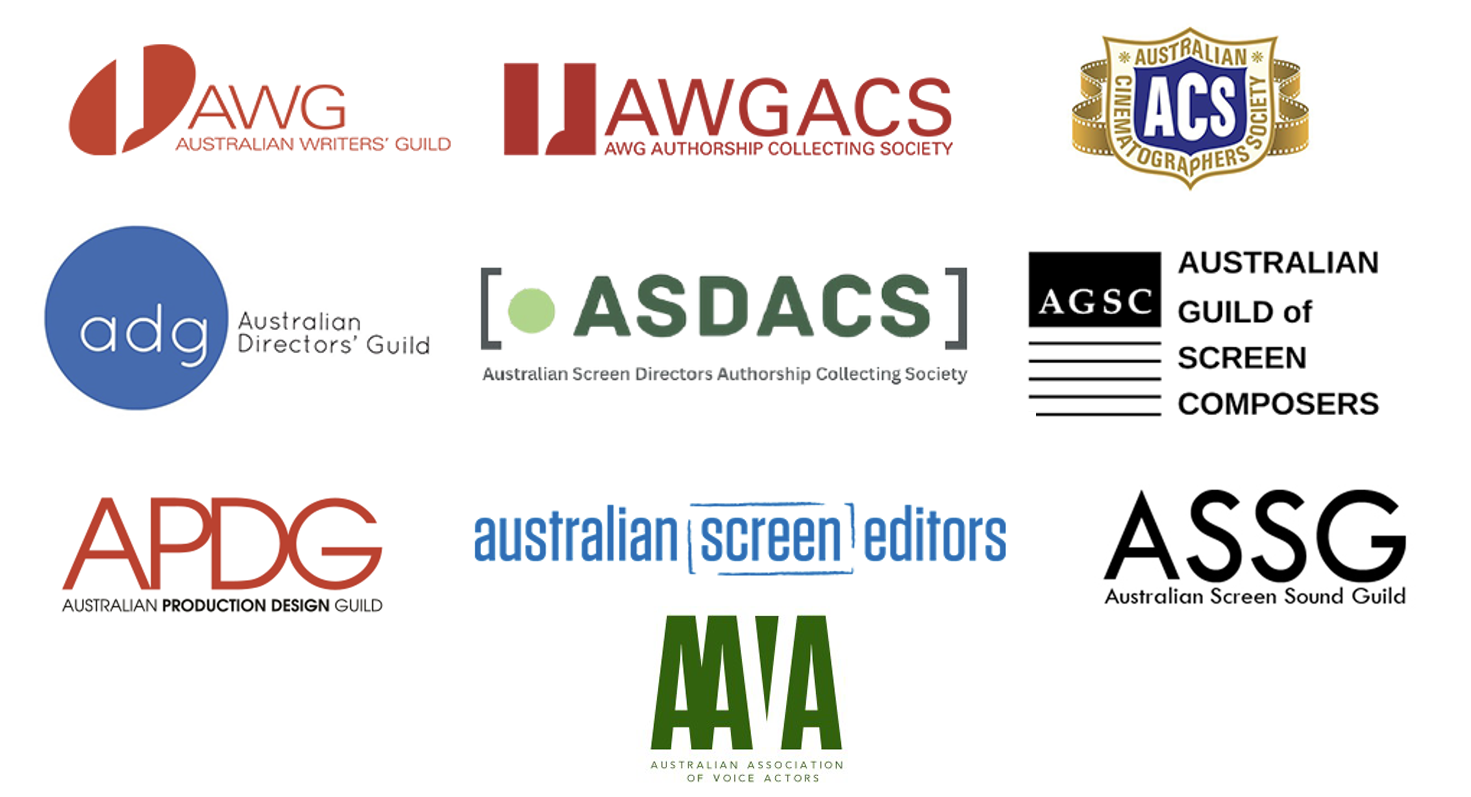Monday 15 September 2025: Australian creative workers have strongly opposed any suggestion that Australia’s copyright laws should be weakened, calling on the government to first address the fundamental issue of copyright theft and the misuse of creative work at the core of Artificial Intelligence (AI) development.
The Productivity Commission’s interim report “Harnessing data and digital technology” sought feedback on a possible “TDM exception” to the Copyright Act, a move creative workers immediately rejected, citing the irreparable damage it could cause to Australia’s billion-dollar creative industries and the proposal’s retrospective legalisation of the large-scale theft already committed by tech companies.
“Tech companies operating Large Language Models (LLMs) have admitted that their AI models are built on the backs of copyrighted works that have been taken without consent or payment. It is unbelievable that the Productivity Commission can even be considering sweeping this under the rug in pursuit of unproven benefits touted by tech companies,” says Australian Writers’ Guild (AWG) and Australian Writers’ Guild Authorship Collecting Society (AWGACS) CEO Claire Pullen.
The joint submission addresses a raft of concerns neglected by the Productivity Commission, including the fundamental question of whether LLMs and AI technology actually work reliably, whether there is any evidence to suggest it will have the economic impact its proponents have claimed, the Productivity Commission’s failure to consult meaningfully with creative organisations and its resultant ignorance of the creative sector, as well as the contradiction of the Productivity Commission’s own 2022 recommendations regarding the protection of First Nations cultural assets and expressions.
“The Productivity Commission has called for a light tough on regulation, and in doing so is falling directly in line with the global tech companies who seek to push aside Australian law and the rights of Australian workers in pursuit of cash-grabs for investors.”
Pullen believes there is a clear way forward for the Government to balance the rights of creative workers and the growth of digital technologies.
“Australia’s existing copyright framework is a sound basis for the continued growth of Aussie content and intellectual property. If we want to fuel productivity in Australia we should be looking to licensing and royalty collection systems that empower creators to own and license their work, their likenesses and voice, rather than stripping away their rights,” says Pullen.
The submission recommends the introduction of AI regulation that:
- Requires AI developers to acquire consent from creative workers before their work or likeness is used to ‘train’ AI datasets, with an appropriate compensation model; and
- Implements a compensatory and rectification process for infringements that have already occurred, including the removal of work from models.
In addition, they propose the government commit to:
- Standalone protections or updated copyright frameworks for First Nations cultural assets;
- A moral right of an artist against the use of their work for AI training by expanding Part IX of the Copyright Act relating to the “Moral Rights of Performers and of Authors of Literary, Dramatic, Musical or Artistic Works and Cinematograph Films”;
- A no-cost jurisdiction available to creators to seek remedy where they believe their work has been infringed, where transparency is required and any failure to provide transparency results in a default judgement against the defendant AI company; and
- Standalone AI regulation consistent with Department of Industry, Science and Resources (DISR) ‘mandatory guardrails for AI use in high-risk settings’.
“Our position is clear – there can be no economic, cultural or scientific benefit to the nation until a process of transparency, consent and ongoing compensation is afforded to the creative workers who have made AI possible,” says Pullen.
READ THE FULL SUBMISSION (PDF).
The AWG and AWGACS position is endorsed by the following industry guilds and collecting societies: Australian Cinematographers’ Society (ACS), Australian Directors’ Guild (ADG), Australian Screen Directors Authorship Collecting Society (ASDACS), Australian Guild of Screen Composers (AGSC), Australian Production Design Guild (APDG), Australian Screen Editors’ Guild (ASE), the Australian Screen Sound Guild (ASSG) and the Australian Association of Voice Actors (AAVA), representing cinematographers, directors, screen and live performance designers, screen composers, sound recorders, sound editors, sound mixers, screen editors and voice actors.


